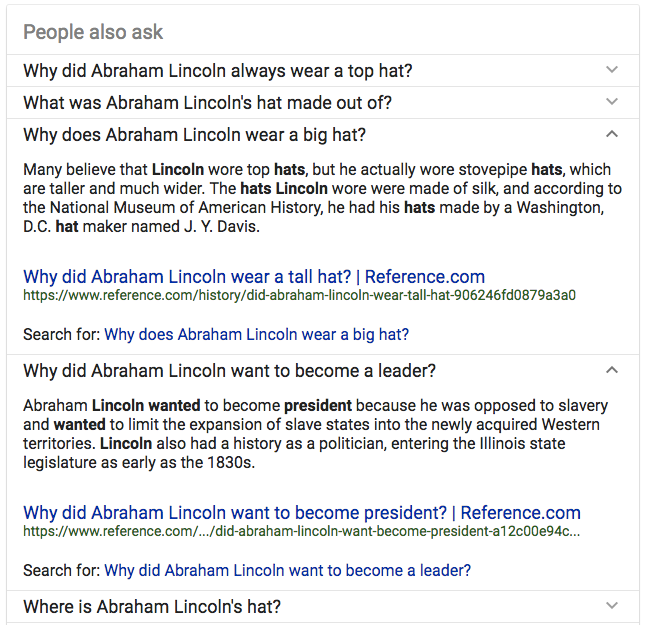We no longer live in a world of 10 blue links, but some elements of SEO hold stubbornly true. People continue to type (or say) search queries, they continue to be presented with options, and they make a choice.
As a result, it still matters where your website ranks. It matters whether consumers choose your listing over the competition. So it stands to reason that we want to track these positions as accurately as possible; they are the lifeblood of a successful SEO campaign.
However, Google’s search algorithms have incorporated an increasing number of factors over the years that have made it more difficult to know exactly where a URL ranks for a search query on a broad scale.
Search ranking data is further obfuscated by the growth of mobile search, local results, and the expanding presence of paid listings. In the case of the latter, the continuing success of Google advertising is driven by the clear causal link between ad dollars spent and the return on that investment. Conversely, the SEO rankings picture continues to grow murkier, with RankBrain at the heart of Google’s ever more sophisticated algorithms.
The Impact of RankBrain on Search Results
RankBrain is Google’s artificial intelligence program that now affects all queries, and it is particularly powerful when processing queries Google has never seen before.
Many consider RankBrain to be part of the Hummingbird algorithm, although this is unconfirmed. It is, however, part of a broader movement towards advanced conversational search and natural language processing of queries. Therefore, RankBrain can improve the quality of search results and help Google (and brands) start to deliver on that eternal-but-elusive marketing goal of bringing the right result to the right user at the right time.
Although much of the potential of this technology remains untapped, there are signs of progress within everyday search results. See, for example, the concertina effect visible in ‘People also ask’ boxes, which expand and adapt based on the user’s interaction with the listings:

This creates new opportunities for relevant content to appear, but it does make it harder to predict exactly when, where, and with what frequency our informational content will rank.
Moreover, as part of a wider and interconnected ecosystem containing a mobile-first index, local search, and voice-based queries, we emerge with a constantly shifting landscape that refuses to satiate the digital marketer’s desire for accurate measurement.

How Can We Measure Something That Is in Constant Flux?
To tackle this question, it would first be worth outlining the core challenges we are now facing as SEO practitioners in a RankBrain-tinged landscape:
- Machine learning is a continually developing process, so measuring comparative data over a period of time is no longer the success indicator it once was.
- Similarly, if a campaign has to be reactive and responsive to this process, it is hard to benchmark and give detailed reports on an ongoing basis.
- With the inclusion of natural language processing as a core part of the algorithm, the possibilities of keyword variations can become unmanageable to track.
- And as RankBrain allows for heavily personalized results, it’s increasingly difficult to predict the kind of keywords and content a site’s audience will engage with.
- Finally, it is very complex for humans to handle the amounts of written language and transform it into relatable vectors in the same way that RankBrain does.
- Results can differ by form (image, video, rich snippet), depending on the device used, the user’s location, or the user’s browsing history.
How are Rank Tracking Platforms Tackling This?
At face value, many rank trackers seem simply to provide an illusion of stability in a permanently shifting data set. Weekly ranking reports present a comforting (admittedly, sometimes discomforting) view of how our pages are performing, but it can be hard to accept and understand that this is not reflective of what so many of our customers see when they search.
Once more, it stands to reason that we seek clarity on this, as our SEO rankings shape important business decisions and we want the data to be reliable. It is a challenging conundrum for rank trackers; something simply has to give, if they are to provide one final number as a ranking position for each query.
To their credit, the major players in this space have taken the issue seriously. Frequent crawls are run across locations and devices and vast data sets are normalized, so this is not a matter of simply pulling one set of rankings and presenting this as gospel truth.
One restricting factor is that many of their customers feel ill-at-ease with the fact that so much instability is inherent within their own data. As such, an ideological shift is required if we are to come to terms with, and avail of, this new landscape, but it is not necessarily one that requires us to jettison keyword tracking altogether.
So How Could We Approach Rank Tracking More Effectively?
The answer to this may lie in targeting and tracking topics in broader keyword clusters, much in the way that Moz’s Keyword Explorer allows us to do. The mindset that this encourages is one that values relevance over sheer quantity, an approach that SEO professionals have been forced towards already with the evasive nature of accurate search volumes.
TechCrunch also notes that as RankBrain continues to grow in sophistication, it will become harder for SEOs to use any of the old shortcuts to success. This will lead to a greater emphasis on using analytics platforms and a deeper understanding of audience and their neighborhood (both physical and digital) to optimize a site.
Therefore, as we gain more insight into user behavior across devices and channels, we would be better advised to analyze ranking positions within audience segments, rather than by device or location. This level of specificity would be reflective of — and reward — sophisticated content marketing efforts that pay close attention to audience needs.

In the meantime, the good news is that while all of the above serves to remind us that the way we need to build strategies has changed, there is still room in any SEO campaign for keyword research.
Nonetheless, a shift needs to take place from aiming for the most popular queries to targeting the most relevant queries for a site’s offering. This doesn’t mean an abandonment of all frequently searched phrases and a race to the bottom to capture every 10-search phrase for each site, but it does mean that SEOs and clients need to think about success differently.
As RankBrain works by connecting convoluted or ambiguous queries with their more popular counterparts, it is constantly learning more about the general topic of these queries. Thus, populating a site hierarchy with interrelated and thoroughly covered topics will continue to increase a brand’s overall visibility and user engagement metrics.
By continuing down the path of measuring rankings at a topic level rather than at query level, we can continue to use keyword rankings as a reliable metric of a campaign’s success. An essential consideration is that these lists are no longer static, but change upon regular analysis of data such as CTRs from the SERPs, site search results, audience interaction with the site, and of course aggregated rankings across the topic as a whole.
As long as people continue to search using typed or spoken queries and brands compete to respond to the query, rank tracking will matter to businesses. However, for this practice to retain its relevance and improve its accuracy, some significant upgrades will be required to reflect a RankBrain-driven search industry.
Image Credits
Featured image: Pixabay
In-post Image #1: Screenshot taken by Clark Boyd March 7, 2017
In-post Image #2: Pixabay
In-post Image #3: Pixabay




